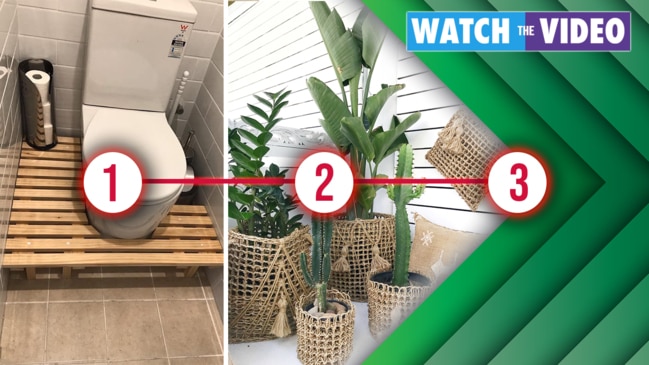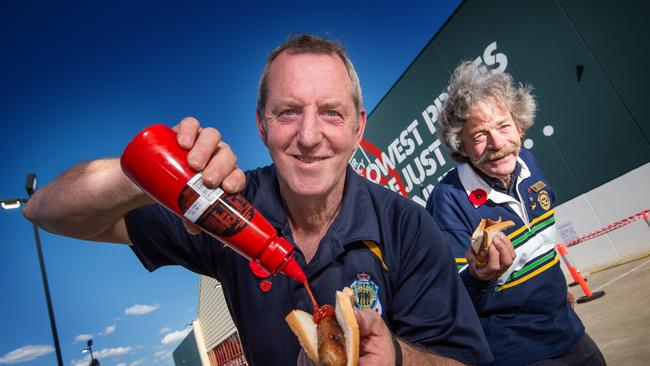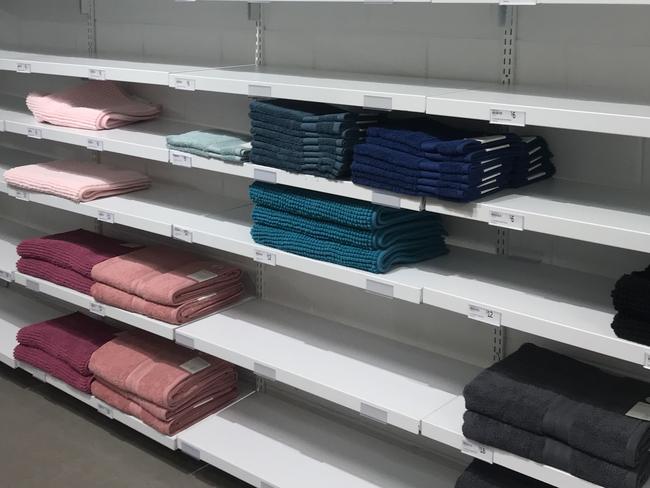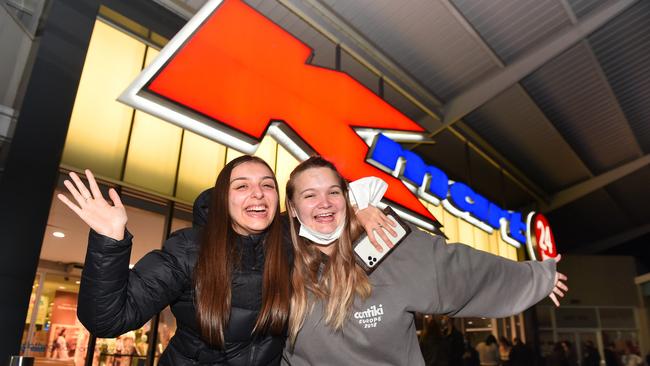Wesfarmers, owner of cash cow Bunnings, cops Kmart, Target complaints
Wesfarmers has become a victim of its own success, copping complaints for low stock at Kmart after shoppers stripped shelves bare.

Wesfarmers shareholders have complained about bare shelves at Kmart and too many synthetic clothes at Target while calling for special discounts as a reward for their investment in the diversified group.
The response from executives to the latter question at the annual general meeting on Thursday, however, was a clear no.
“This is something, naturally, that is considered from time to time,” chairman Michael Chaney said.
But a decision had been made against such a move because giving discounts to nearly half a million “mum and dad” investors meant all shoppers at Wesfarmers’ retail chains would have to pay more.
“We’re better to go forward with the everyday low price sort of model and that’s to benefit all our customers, and as far as our shareholders are concerned, they then get higher dividends, which of course they can spend as they wish,” Mr Chaney said.
The meeting came after the diversified conglomerate issued a trading update showing Bunnings remains its biggest cash cow, enjoying a 31 per cent surge in comparable sales growth for the financial year to date, excluding stores closed in Melbourne and Auckland during second wave COVID-19 lockdowns.
The surge is of course being driven by the Australia-wide DIY trend throughout the pandemic, while commercial customers are also spending big.
“Consumer sales remained particularly strong as customers spent more time undertaking projects around the home,” Wesfarmers said.

The first question at the AGM was a complaint about low stock at Kmart.
Managing director Rob Scott said inventories had shrunk around the end of 2019-20 across all of Wesfarmers’ retail outlets, including Officeworks, but the leanest shelves were seen at Bunnings.
“The issues with lack of stock and availability in Kmart, particularly back in the time of June to August really related to the very long lead times that we had within Kmart’s supply chain,” Mr Scott said.
“We order in bulk, we have long lead times, deal directly with factories and that’s why we offer such unique products at such exceptional prices but one of the downsides is adjusting to spikes in demand and highly volatile demand patterns, which we had.”
Industrial action at port terminals also created problems.
“In recent months, we’ve started to get inventory back flowing into stores,” Mr Scott said.
“We’re in much better shape. We’ve actually ordered a significant amount more in the lead up to Christmas to ensure that we’ve got ample stock.”
Another shareholder complained about synthetic clothing at Target, which is undergoing an overhaul with about 90 underperforming stores converting into Kmarts.
The shareholder also said there few points of difference between the two discount department store chains.

“We certainly do see quite a difference between Kmart and Target, and we certainly think the restructuring of Target will enhance that,” Mr Chaney said.
Nine large format Target stores have been converted to Kmart stores and six Target Country stores have transformed into K Hub stores in recent months - with 94 to 99 per cent of staff retained.
Mr Scott said there was a strong customer demand for polyester clothes but “we have started to include some additional natural cotton products”.
“We’ve also started to utilise input for products where there is recycled plastic - for example, recycled bottles going into activewear, so we’re always looking to innovate our product range.”
The executives were also repeatedly grilled over reliance on Chinese imports, but Mr Chaney said the group bought from 20 different countries.

Kmart hit headlines as the pandemic took hold for putting clothing factories in Bangladesh under pressure, demanding big discounts on orders already made then implementing a new deadline or the orders would be cancelled.
Mr Chaney said no orders under production were cancelled “without liability”.
“Some of the controversy arose because many of the European retailers had cut off supplies during COVID,” he said.
“Some of our operations, it was suggested, were not doing the right thing.
“In our view, that is not the case.”
Mr Scott confirmed there had been lots of discussions with suppliers at the start of the health crisis amid fears of plunging consumer demand.
Unsurprisingly, the trading update also showed Wesfarmers’ retail businesses achieved total online sales growth of 166 per cent, excluding online-only department store and marketplace Catch, which it bought in June last year for $230 million.
Catch had 2.7 million active customers at the end of October, up from 2.3 million four months earlier, and total sales soared 114.4 per cent during the period.


